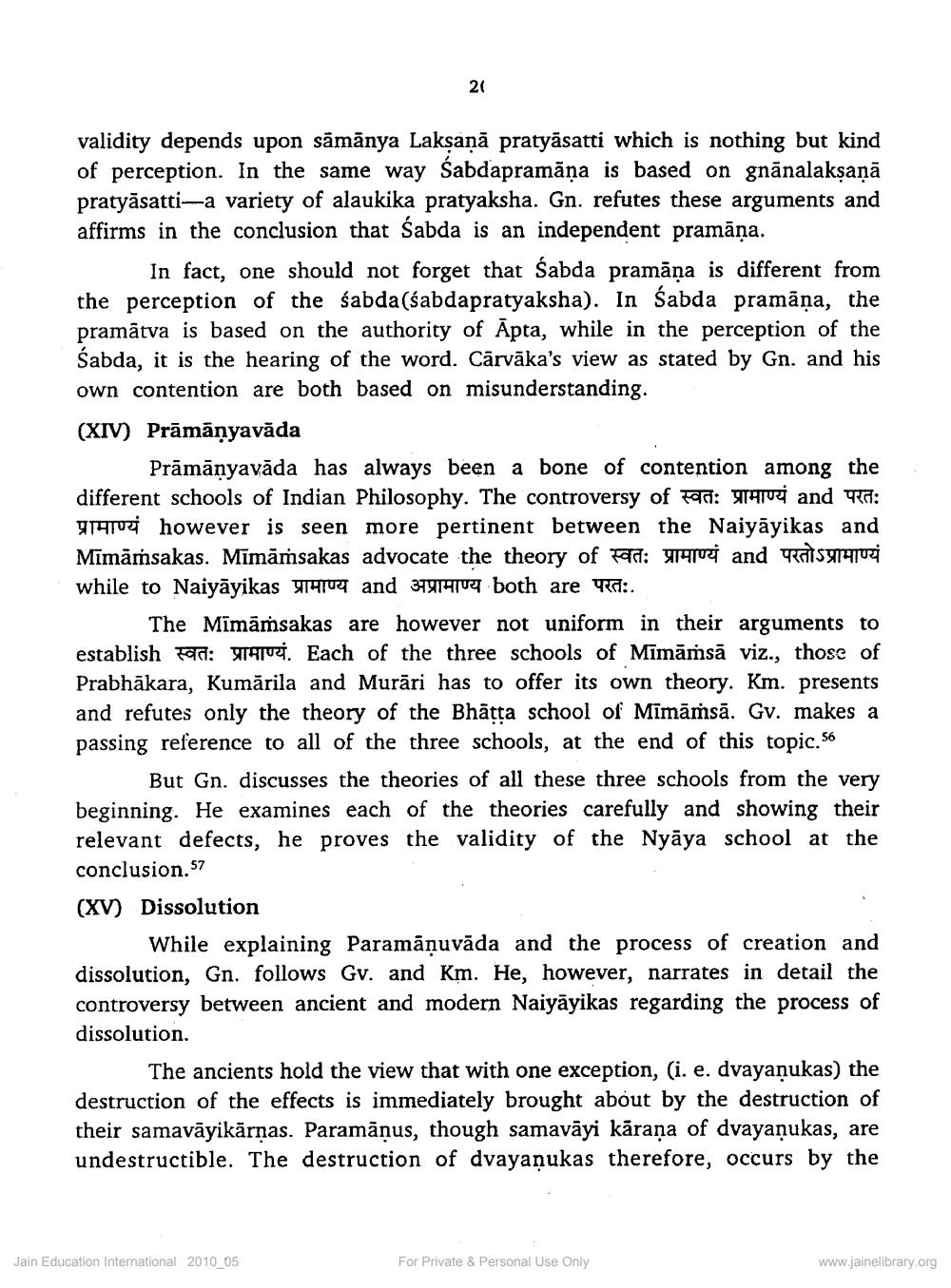________________
2(
validity depends upon sāmānya Lakṣaṇā pratyasatti which is nothing but kind of perception. In the same way Sabdapramāņa is based on gnānalakṣaṇā pratyāsatti-a variety of alaukika pratyaksha. Gn. refutes these arguments and affirms in the conclusion that Śabda is an independent pramāņa.
In fact, one should not forget that Śabda pramāņa is different from the perception of the sabda (sabdapratyaksha). In Śabda pramāṇa, the pramätva is based on the authority of Apta, while in the perception of the Śabda, it is the hearing of the word. Cārvāka's view as stated by Gn. and his own contention are both based on misunderstanding.
(XIV) Prāmāṇyavāda
Prāmānyavāda has always been a bone of contention among the different schools of Indian Philosophy. The controversy of स्वतः प्रामाण्यं and परतः प्रामाण्यं however is seen more pertinent between the Naiyāyikas and Mīmārisakas. Mīmārsakas advocate the theory of स्वतः प्रामाण्यं and परतोऽप्रामाण्यं while to Naiyāyikas प्रामाण्य and अप्रामाण्य both are परत:
The Mīmāmsakas are however not uniform in their arguments to establish : . Each of the three schools of Mīmāmsā viz., those of Prabhakara, Kumārila and Murāri has to offer its own theory. Km. presents and refutes only the theory of the Bhatta school of Mīmāmsā. Gv. makes a passing reference to all of the three schools, at the end of this topic.
But Gn. discusses the theories of all these three schools from the very beginning. He examines each of the theories carefully and showing their relevant defects, he proves the validity of the Nyaya school at the conclusion.57
(XV) Dissolution
While explaining Paramāņuvāda and the process of creation and dissolution, Gn. follows Gv. and Km. He, however, narrates in detail the controversy between ancient and modern Naiyāyikas regarding the process of dissolution.
The ancients hold the view that with one exception, (i. e. dvayaṇukas) the destruction of the effects is immediately brought about by the destruction of their samaväyikārņas. Paramāņus, though samaväyi kāraṇa of dvayaṇukas, are undestructible. The destruction of dvayanukas therefore, occurs by the
Jain Education International 2010_05
For Private & Personal Use Only
www.jainelibrary.org




